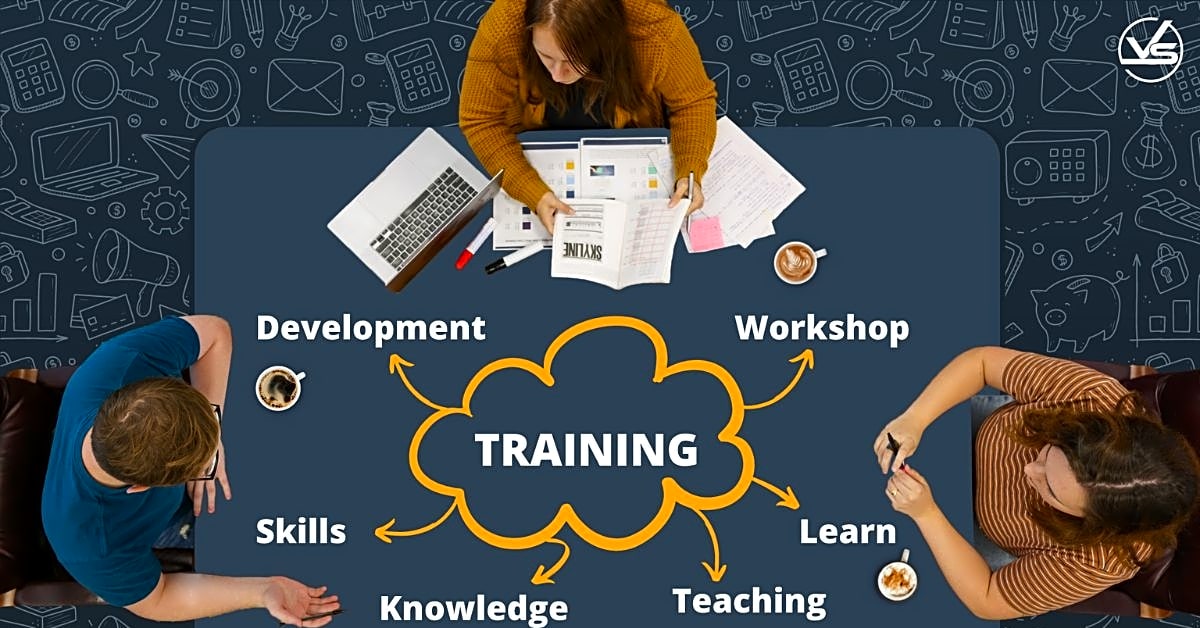Welcome to our in-depth article on managing team dynamics. As a business owner or manager, understanding how to effectively manage your team is crucial for the success of your company. Team dynamics refer to the interactions and relationships among team members, and it plays a significant role in the overall productivity and performance of a team.
In today’s fast-paced and constantly evolving business world, it is essential to have effective strategies in place for managing team dynamics. In this article, we will dive into various techniques and approaches that can help you foster a positive and productive team dynamic within your organization.
Whether you are a seasoned manager or just starting out, this article will provide valuable insights and practical tips to help you successfully navigate the complexities of team dynamics. So, let’s get started and learn how to manage your team dynamics for a thriving business.
To effectively manage a team, you need to have a solid understanding of various management strategies. This includes leadership skills, project management techniques, time management tactics, and more.
Leadership skills are essential for managing team dynamics as they involve setting a vision, motivating and guiding team members, and resolving conflicts. A good leader knows how to delegate tasks, communicate effectively, and foster a positive work environment. For example, in a business setting, a leader may use transformational leadership to inspire and empower team members to achieve their goals.
Project management is another crucial aspect of managing a team. It involves planning, organizing, and controlling resources to achieve specific goals within a given timeframe. Different project management methods, such as Agile and Waterfall, have their own advantages and disadvantages. For instance, Agile is more flexible and allows for continuous improvement, while Waterfall is more structured and suitable for projects with well-defined requirements.
Time management is also important when managing a team. As a manager, you need to prioritize tasks, set realistic deadlines, and ensure that team members are using their time efficiently. One effective time management tactic is the Pomodoro Technique, which involves working in 25-minute intervals followed by short breaks.
Team building is another crucial aspect of managing team dynamics. A strong team is built on trust, respect, and effective communication. As a manager, you can organize team building activities, encourage collaboration and open communication, and provide opportunities for professional development.
Effective decision making is also essential for managing team dynamics. As a manager, you need to make decisions that align with the company’s goals and values while considering the input of your team members. This can be achieved through methods such as brainstorming, SWOT analysis, or the Six Thinking Hats technique.
Communication skills are crucial for fostering a positive and efficient work environment. As a manager, you need to communicate clearly, actively listen, and provide constructive feedback. Effective communication can prevent misunderstandings, boost team morale, and improve overall productivity.
Problem solving is another important skill when managing team dynamics. As a manager, you need to identify issues, analyze them, and come up with effective solutions. This may involve using techniques such as root cause analysis, fishbone diagrams, or the 5 Whys method.
Organizational skills are also crucial for managing a team. As a manager, you need to keep track of tasks, deadlines, and resources. This can be achieved through effective planning, setting priorities, and using tools such as project management software.
Lastly, productivity is a key factor in managing team dynamics. As a manager, you need to motivate your team and provide them with the necessary resources to be productive. This includes setting clear goals, providing feedback and recognition, and ensuring that team members have a healthy work-life balance.
Effective Leadership
Effective leadership is crucial when it comes to managing team dynamics. As a leader, it is your responsibility to guide and motivate your team towards success. This requires not only strong communication skills, but also the ability to inspire and empower your team members to reach their full potential.
One key aspect of effective leadership is setting clear goals and expectations for your team. This helps to create a sense of direction and purpose, and gives your team a sense of ownership over their work. It also allows for better accountability and helps to avoid conflicts or misunderstandings.
Another important aspect of effective leadership is being a good listener. This means actively listening to your team members’ ideas and concerns, and taking them into consideration when making decisions. This not only fosters a more collaborative and inclusive work environment, but also shows your team that their opinions are valued.
Furthermore, it is crucial for a leader to lead by example. Your team will look up to you for guidance and inspiration, so it’s important to embody the qualities and behaviors that you expect from your team. This includes being punctual, organized, and open-minded.
Lastly, effective leadership also involves providing support and recognition for your team. By acknowledging their hard work and providing them with the necessary resources and support, you can boost morale and motivation within your team. This can lead to increased productivity and better overall team dynamics.
Team Building Strategies
As a business owner, you know the importance of fostering strong relationships within your team. When team members have positive relationships with one another, it creates a cohesive work culture that leads to increased productivity and overall success. In this section, we will explore some effective team building strategies that you can implement in your management approach.
One key strategy for team building is promoting open communication. Encourage your team members to share their thoughts and ideas, and actively listen to each other. This helps to build trust and respect among team members, leading to a more cohesive and collaborative environment.
Another important aspect of team building is creating opportunities for team bonding. This can include team outings, team building exercises, or even simple social events. These activities help to break down barriers and foster a sense of camaraderie among team members.
Problem solving is another crucial aspect of managing team dynamics. Encourage your team to work together to find solutions and make decisions as a group. This not only strengthens their problem-solving skills but also promotes teamwork and collaboration.
Lastly, it is important to recognize and celebrate individual and team achievements. This helps to boost morale and motivation within the team, creating a positive work culture that encourages continued success.
Boosting Productivity
As a business owner, one of your main goals is to increase productivity and achieve your business goals. This can be a challenging task, especially when managing a team with different personalities and work styles. However, with the right strategies in place, you can boost productivity and drive your business towards success.
One strategy for increasing productivity is to establish clear expectations and goals for your team. This will provide them with a sense of direction and purpose, making it easier for them to stay on track and work towards a common goal. Additionally, regularly communicate with your team to ensure everyone is on the same page and address any potential roadblocks or issues.
Another effective way to boost productivity is by promoting a positive and collaborative work environment. Encourage your team members to share ideas and collaborate on projects, as this can lead to more efficient problem-solving and better results. Additionally, make sure to recognize and reward hard work and achievements, as this can motivate your team to continue striving for success.
Incorporating technology and automation into your business processes is another great way to increase productivity. By automating repetitive tasks or streamlining processes, you can free up more time for your team to focus on important tasks and projects. This can also help reduce human error and improve overall efficiency.
Lastly, don’t forget the importance of employee well-being in boosting productivity. Make sure to prioritize work-life balance and offer support for your team members when needed. A happy and healthy team will be more motivated and productive in their work.
Problem Solving Techniques
In order to effectively manage team dynamics, it is important to have strong problem solving techniques in place. When issues arise within a team, it is crucial to approach them in a systematic manner in order to find effective solutions.
One of the first steps in problem solving is identifying the problem itself. This requires communication and active listening from all team members. As a manager, it is important to create an open and safe space for team members to voice their concerns and share their perspectives.
Once the problem has been identified, the next step is to gather all relevant information and data. This can include talking to team members, reviewing project details, and analyzing any potential underlying causes.
From there, it is important to brainstorm potential solutions and evaluate their feasibility and effectiveness. It may be helpful to involve the entire team in this process, as different perspectives can lead to more creative and comprehensive solutions.
After a solution has been chosen, it is important to create a plan of action and assign tasks to team members. This ensures that everyone is on the same page and knows their role in implementing the solution.
It is also crucial to continuously monitor and evaluate the effectiveness of the solution. If it is not producing the desired results, it may be necessary to revisit the problem and find alternative solutions.
By approaching problems in a systematic manner and involving all team members in the process, you can effectively manage team dynamics and find effective solutions that promote teamwork and productivity.
Effective Communication
Effective communication is essential for managing team dynamics and promoting collaboration within your team. As a business owner, it’s important to master the art of communication in order to avoid conflicts and keep your team working together towards a common goal.
One key aspect of effective communication is active listening. This means truly listening to what your team members have to say, rather than simply waiting for your turn to speak. When team members feel heard and valued, they are more likely to contribute their ideas and work together more effectively.
In addition to listening, it’s important to clearly communicate expectations and goals to your team. This ensures that everyone is on the same page and working towards the same objectives. Be open to feedback and encourage open communication within your team, so that any issues or concerns can be addressed promptly.
Another important aspect of effective communication is being aware of nonverbal cues and body language. Pay attention to how team members are reacting during meetings and discussions, and address any negative body language or nonverbal cues that may be hindering effective communication.
Remember, communication is a two-way street. Encourage your team members to voice their opinions and ideas, and be open to suggestions and feedback. This fosters a sense of collaboration and trust within the team, leading to more effective problem solving and decision making.
In conclusion, mastering the art of communication is crucial for managing team dynamics and promoting a positive working environment. By actively listening, clearly communicating expectations, being aware of nonverbal cues, and fostering open communication, you can avoid conflicts and promote collaboration within your team. Use these tips to improve your team management strategy and see the positive impact on your business success.
Organizational Skills
Managing a team effectively requires strong organizational skills. As a leader, it is your responsibility to keep your team organized and on track for success. This not only involves setting clear goals and deadlines, but also creating systems and processes to ensure that tasks are completed efficiently and effectively.
One key organizational skill is time management. It is important to prioritize tasks and delegate responsibilities in order to maximize productivity. This involves understanding each team member’s strengths and assigning tasks accordingly. It also means setting realistic deadlines and regularly checking in to ensure that tasks are being completed on time.
Another important aspect of organization is communication. Clear communication channels need to be established within the team to ensure that everyone is on the same page. This can include regular team meetings, using project management tools, and maintaining open lines of communication between team members.
In addition, problem solving is a crucial organizational skill. As issues arise, it is important to address them quickly and effectively to keep the team moving forward. This can involve brainstorming solutions as a team, delegating specific tasks, and regularly evaluating progress.
To stay organized, it is also important to regularly review and assess your team’s productivity. This can involve tracking progress, identifying areas for improvement, and making necessary adjustments to optimize efficiency.
By implementing strong organizational skills, you can ensure that your team stays on track for success. Remember to prioritize tasks, communicate clearly, solve problems effectively, and regularly assess productivity. With these strategies in place, your team will be well-equipped to achieve their goals and contribute to the overall success of your business.
Managing team dynamics is a continuous process that requires consistent effort and adaptation. By implementing the strategies and skills discussed in this guide, you can create a strong and efficient team that drives your business towards success. Remember, effective team management is crucial for any business, whether you are just starting out or looking to grow. So take the time to invest in your team and watch your business thrive!






